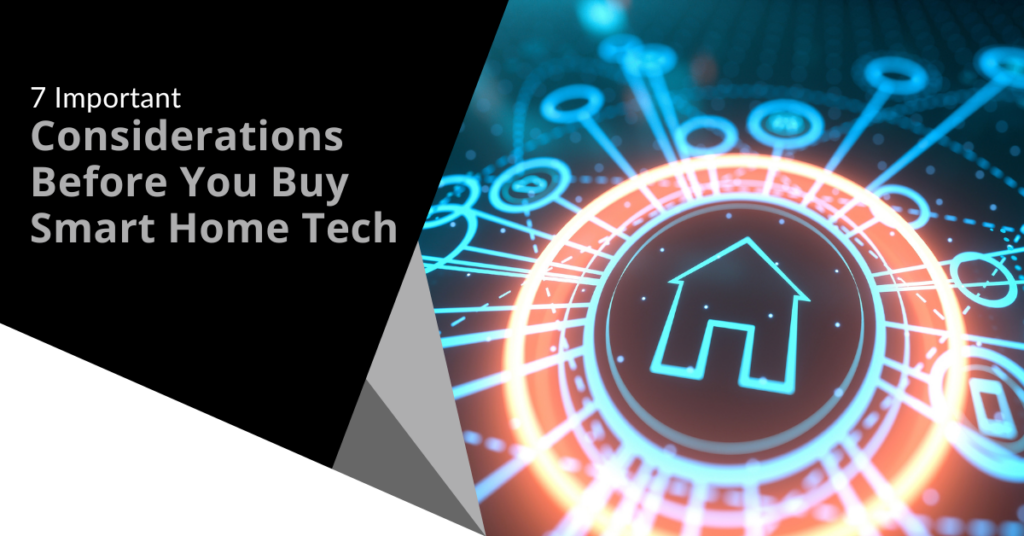|
Getting your Trinity Audio player ready...
|

Smart homes today feel like they’re straight out of a futuristic film. With lights you can control through voice commands, thermostats that adjust themselves, and robotic vacuums keeping your floors spotless, the appeal of smart home tech is undeniable. But before you rush to upgrade your home with the latest gadgets, it’s important to take a step back and assess what’s truly needed. Here are seven crucial questions to consider before investing in smart home technology.
1. Does the Smart Home Device Offer Real Value?
Not all smart home gadgets are worth the investment. While some solve practical, everyday issues, others might be more of a novelty. Take a moment to evaluate how each device will fit into your daily life. Are there specific tasks that could benefit from automation or technology assistance?
For example, if you frequently forget to switch off the lights when leaving a room, smart bulbs with motion sensors can offer real value. But a smart toaster? That may not be as helpful, especially when mornings are already a rush.
2. Will It Work Seamlessly with Other Devices?
One challenge in building a cohesive smart home is ensuring all devices work well together. Different brands sometimes use proprietary systems that don’t communicate well with others. Many smart gadgets require a central hub or app to operate, so it’s critical to make sure any new device will integrate smoothly with what you already own—or plan to buy.
Dealing with incompatible systems can lead to a clunky user experience, requiring multiple apps and leaving some devices unable to communicate. Researching device compatibility ahead of time will save you frustration.
Good news: A universal Matter standard is being developed to improve device interoperability across brands.
3. Is Your Wi-Fi Ready for the Load?
A smart home relies heavily on a fast and stable Wi-Fi connection. If your internet is slow or prone to dropping, smart home devices could become more of a headache than a convenience. Issues like smart lights flickering, voice assistants lagging, or thermostats failing to adjust are all common problems when the Wi-Fi isn’t up to speed.
Consider upgrading your internet service or router if you’re planning to add multiple data-hungry devices to your network.
4. What Are the Privacy Implications of Smart Homes?
Smart home gadgets collect a wide range of data about your habits, from your preferred home temperature to when you typically turn on the lights. While this data can personalize your experience, some companies might also sell your information to advertisers.
Before purchasing a device, it’s crucial to read its privacy policy thoroughly. What data does the device collect? How is it used? Can you control how your data is shared? If the policy raises concerns, consider choosing a different product that prioritizes data protection.
5. Are You Protecting Your Home’s Security?
With the convenience of smart homes comes a heightened risk of security threats. Since smart devices are connected to your Wi-Fi network, they can become vulnerable to hackers. These attackers could potentially access your home’s controls, adjust settings, or steal sensitive information.
To enhance security, prioritize devices with strong encryption and two-factor authentication. Regularly updating your devices with the latest software patches is also essential to stay protected from known vulnerabilities. For added security, you can create a separate Wi-Fi network just for your smart devices, isolating them from more sensitive personal data.
6. Is the Smart Home Device Future-Proof?
Technology evolves quickly, and what’s cutting-edge today might become obsolete in a few years. Before investing in a smart home device, consider the company’s track record. Are they known for providing long-term software updates and support? Ongoing updates are critical for both security and functionality.
A lack of consistent updates can leave your device vulnerable and outdated, so it’s worth looking for products backed by reliable, forward-thinking manufacturers.
7. Should You Start Small?
Smart home technology can be a big investment, so it’s wise to start small and gradually scale up. Instead of automating your entire home at once, begin with a few key devices that serve your immediate needs.
Smart lights or a smart thermostat are great starting points. They can give you a taste of how smart home technology can benefit your daily life without overwhelming you. As you grow comfortable with these devices, you can expand your system and fine-tune your home automation setup.
Taking a gradual approach also helps you identify potential issues and better understand the value of each device before committing to a larger investment.
Before diving into smart home technology, asking these seven questions will help you make informed decisions. By doing so, you’ll create a smart home that truly enhances your life, rather than complicating it.
Need Professional Help Setting Up Your Smart Home?
DIY smart home setups may not be as easy—or secure—as they seem. If you need expert guidance in building a connected, secure, and efficient smart home, our team is here to help. Contact us today to get started!
Twintel has grown into an expansive, full team of IT services professionals, acting as the outsourced IT department of non-profits, small to mid-size businesses, and enterprise-level corporations in Orange County, across California, and nationally.
Today, it’s the strength and deep expertise of the Twintel team that drives positive outcomes for clients. Each of the support staff, technicians, and engineers works diligently each day to make sure that the companies served have the seamless, secure, and stable IT environments needed to allow them to pursue their organizational objectives.